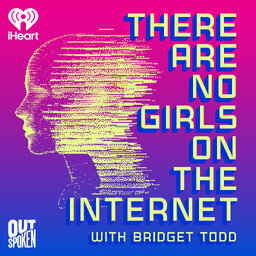Native People Are #NotYourMascot
Why is Washington DC's professional football team changing their offensive name? In part because of people like Jacqueline Keeler, who helped create the #NotYourMascot movement.
Go to Pollen Nation's Facebook page to check out Jacqueline's podcast: https://www.pollennationmagazine.com/
Follow Jacqueline on Twitter: https://twitter.com/jfkeeler?ref_src=twsrc%5Egoogle%7Ctwcamp%5Eserp%7Ctwgr%5Eauthor
Learn more about your ad-choices at https://www.iheartpodcastnetwork.com
In 1 playlist(s)
There Are No Girls on the Internet
Marginalized voices have always been at the forefront of the internet, yet our stories often go over…Social links
Follow podcast
Recent clips

Chris Pratt is the Least Interesting Thing About the Hallow App (A Message to Live Action)
1:29:09

BAFTAs racial slur; Nicki Minaj bot network; TikTok “Psychic” faces Defamation trial for University of Idaho murders – NEWS ROUNDUP!
1:16:39

A TANGOTI Announcement We've Been Sitting On
47:34
 There Are No Girls on the Internet
There Are No Girls on the Internet